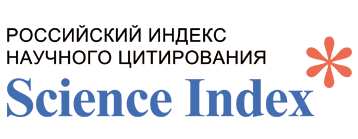EXPLORING ENGLISH LEARNERS’ READINESS FOR INTERCULTURAL COMMUNICATION AND CITIZENSHIP
DOI:
https://doi.org/10.59102/kufil/2023/iss3pp151-159Аннотация
In the world of super-diversity, education for intercultural citizenship has acquired a special significance. Despite numerous reviews in the research literature that address the intercultural citizenship in foreign language (FL) education, very few studies have investigated the connections between language learners’ motivation for studying a foreign language and their development of intercultural citizenship (IC). This study aims to bridge this gap by focusing on this relationship. For this purpose, quantitative data was collected from 407 students through an online questionnaire.
The results revealed that the respondents consider intercultural communication, travel, networking, and future prospects, as important motivations for learning English. Moreover, the participants reported having a diverse range of intercultural experiences and feeling prepared for intercultural communication and citizenship. However, when evaluating their English classes’ effectiveness in preparing them for these aspects, the majority of students expressed that their EFL classes did not adequately equip them for high-level intercultural communication and citizenship. This research contributes to existing literature by investigating the connection between students’ motivation to learn English and their intercultural communication and citizenship skills and behaviors. Furthermore, the study emphasizes the significance of providing students with the necessary skills and knowledge to engage in purposeful and successful intercultural dialogue.
Ключевые слова:
intercultural communication, intercultural citizenship, EFL students, motivation, factorsБиблиографические ссылки
Byram, M. (2018). From foreign language education to education for intercultural citizenship: Essays and reflections. Clevedon: Multilingual Matters. http://dx.doi.org/10.21832/9781847690807
Oxley, L., & Morris, P. (2013). Global citizenship: A typology for distinguishing its multiple conceptions. British Journal of Educational Studies, 61(3), 301–325. https://doi.org/10.1080/00071005.2013.798393
Porto, M. (2018). Intercultural Citizenship Education in the Language Classroom. In M.Porto (Ed.), The Palgrave Handbook of Global Citizenship and Education (pp. 489-506). London: Macmillan. http://dx.doi.org/10.1057/978-1-137-59733-5_31
Byram, M. (2009). Intercultural competence in foreign languages. The intercultural speaker and the pedagogy of foreign language education. In D. Deardorff (Ed.), The SAGE handbook of intercultural competence (pp.321-332). California: Sage. https://doi.org/10.4135/9781071872987
Byram, M., Perugini, D. C., & Wagner, M. (2013). The Development of Intercultural Citizenship in the Elementary School Spanish Classroom. Learning Languages, 18 (2), 16-31. http://hdl.handle.net/10993/27149
Wagner, M., Cardetti, F., & Byram, M. (2018). The humble linguist: interdisciplinary perspectives on teaching and assessing intercultural citizenship. In E. M. Luef &M. Marin (Eds.), The talking species: Perspectives on the evolutionary, neuronal and cultural foundations of language (pp. 419-443). Graz, Austria: Uni-Press Graz Verlag.
Hsieh, J. (2009). Reconceptualization English teaching in Taiwan: action research with technical college students. [Doctoral thesis, University of Durham]. Durham E-theses.
Golubeva, I., Wagner M., & Yakimowski, M.E. (2017). Comparing students’ perceptions of global citizenship in Hungary and the USA. In M. Byram, I. Golubeva, H. Hui & M. Wagner (Eds.), From principles to practice in education for intercultural citizenship (pp.3-21). Bristol, Blue Ridge Summit: Multilingual Matters. http://dx.doi.org/10.21832/9781783096565-005
Han, H., Li, S., Hongtao, J., & Yuqin, Zh. (2017). Exploring perceptions of intercultural citizenship among English learners in Chinese universities. In In M. Byram, I. Golubeva, H. Hui & M. Wagner (Eds.), From Principles to Practice in Education for Intercultural Citizenship (pp. 25- 44). Bristol, Blue Ridge Summit: Multilingual Matters. http://dx.doi.org/10.21832/9781783096565- 006
Lundgren, U. Intercultural encounters in teacher education - collaboration towards intercultural citizenship. In M. Byram, I. Golubeva, H. Hui & M. Wagner (Eds.), From Principles to Practice in Education for Intercultural Citizenship. – Bristol, Blue Ridge Summit: Multilingual Matters, 2017. – P. 45– 68. https://doi.org/10.21832/9781783096565-007
Yamada, E., Hsieh, J. Beyond language barriers: approaches to develop citizenship for lower level language classes. In M. Byram, I. Golubeva, H. Hui & M. Wagner (Eds.), From Principles to Practice in Education for Intercultural Citizenship. – Bristol, Blue Ridge Summit: Multilingual Matters, 2017. – P. 81–103. https://doi.org/10.21832/9781783096565-008
Baker, W., Fang, F. From English language learners to intercultural citizens: Chinese student sojourners’ development of intercultural citizenship in ELT and EMI programmes. – British Council, 2019.
Gerfanova, E.F., Nemtchinova, Ye.M. Exploring perceptions of intercultural citizenship among Kazakhstani university students. //Bulletin of Toraighyrov University. – 2022. – № 3. – P.182–194. https://doi.org/10.48081/KVKZ7976.
Опубликован
Как цитировать
Выпуск
Раздел
Лицензия
Copyright (c) 2023 Bulletin of Shokan Ualikhanov Kokshetau University Philological Series

Это произведение доступно по лицензии Creative Commons «Attribution-NonCommercial» («Атрибуция — Некоммерческое использование») 4.0 Всемирная.











